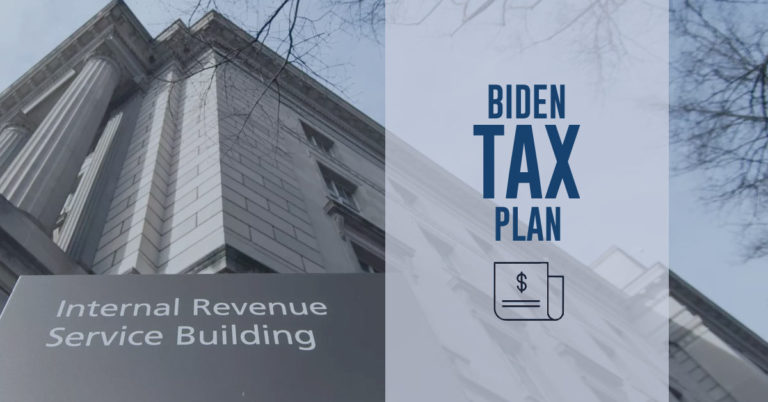As a business owner, your journey doesn’t just involve launching and growing your enterprise; it also includes planning for the day when you will step away. An effective exit strategy is crucial, not only for ensuring financial security but also for the sustainability of the business you’ve worked hard to build.
Surprisingly, a significant number of businesses lack a formal succession plan. For instance, a study by Wilmington Trust found that 58% of small business owners have no such plan.1 This oversight can lead to uncertainty and potential financial loss for both the business and the owner.
Did you know? Family-owned businesses employ 60% of the US workforce and create 78% of all new jobs.
Let’s explore various exit strategies that can secure your legacy and provide a roadmap for transitioning out of your business.
Succession as an Exit Strategy
Succession within the family allows for the continuation of your business legacy. Succession planning strategy involves transferring business ownership to family members, either through gifting or selling interests.
While succession planning maintains the business within the family, it requires careful consideration. Be sure to consider your income needs, the tax consequences, and how family members will feel about your choice. It’s also important to evaluate the preparedness of the next generation.
Challenges family businesses face:
- 30% of family businesses survive the transition from first to second generation ownership.
- 12% survive the transition from second to third generation.
- 47% of family business owners expecting to retire in five years DO NOT have a successor.2
Under the annual gift tax exclusion, you can currently gift up to $18,000 of ownership interests without using up any of your lifetime gift and estate tax exemption. Valuation discounts may further reduce the taxable value of the gift.
With the gift and estate tax exemption approximately doubled through 2025 ($13.61 million for 2024), gift and estate taxes may be less of a concern for some business owners. But others may want to make substantial transfers now to take maximum advantage of the high exemption. What’s right for you will depend on the value of your business and your timeline for transferring ownership.
Buy-Sell Agreement
Particularly relevant for businesses with multiple owners, a buy-sell agreement is a formal approach to managing the transition of ownership. This agreement becomes active upon specific events like retirement, disability, or death of an owner.
A well-drafted buy-sell agreement It provides clarity on how the business interest of the departing owner will be valued and transferred, ensuring business continuity and minimizing conflicts among remaining and new owners.
A key issue with any buy-sell agreement is providing the buyer(s) with a means of funding the purchase. Life or disability insurance often helps fulfill this need and can give rise to several tax issues and opportunities.
One of the biggest advantages of life insurance as a funding method is that proceeds generally are excluded from the beneficiary’s taxable income, provided certain conditions are met.
Merger or Acquisition
Merging with or being acquired by another company can offer a strategic exit for business owners.
This method can result in a significant financial return and may offer flexibility in terms of the owner’s involvement post-transaction.
However, it requires careful negotiation and understanding of the business’s value and may lead to a complete change in the business’s direction.
Selling your business can time-consuming, costly, and sometimes unsuccessful, so it’s good to have a Plan B. One of out of 5.5 businesses—a little less than 20%—actually sells (this is for businesses with revenue of less than 1 million). 3
Management or Employee Buyout
Selling the business to key employees or the management team, known as a Management Buyout (MBO), can be an effective way to ensure business continuity while rewarding those who have contributed to its success.
This approach often leads to a smoother transition but requires careful planning to ensure the financial viability of the deal for both parties. Although a management buyout can be combined with private equity for additional resources, it can also lead to a lower price or unattractive terms, illiquid buyers, or heavy seller financing.
Employee Stock Ownership Plan (ESOP)
An ESOP allows employees to become owners of the business. This strategy not only motivates and rewards employees but can also provide the owner with a gradual exit route. Shares can also be purchased with pre-tax dollars and the taxable gain on ESOP shares may be deferred. An ESOP is a tool for immense wealth creation and can also be a valuable part of an employee’s retirement plan.
However, ESOPs come with regulatory complexities and require a stable and profitable business to succeed. There may be limited exit options, making it difficult to cash out the ESOP shares or compelling the company to buy back shares from departing employees. In addition, the vesting period for ESOP shares can be long, meaning that employees may have to wait several years before they can own the shares outright.
A Plan for the Future
Choosing the right exit strategy requires a deep understanding of your personal and business goals, the nature of your business, and its market value. It’s a decision that shouldn’t be taken lightly, as it will impact not just your financial future but also the legacy of the business you’ve built.
Consulting with financial advisors, attorneys, and succession planning experts can provide valuable insights, helping you navigate this critical transition smoothly. Remember, an exit strategy is not just about ending a chapter; it’s about securing a legacy and paving the way for the business’s future success.
Sources:
- https://news.wilmingtontrust.com/New-Research-from-Wilmington-Trust-Finds-Nearly-60-Percent-of-Business-Owners-Lack-a-Transition-Plan#assets_all ↩
- https://www.score.org/resource/infographic/infographic-family-business%E2%80%94successes-and-obstacles ↩
- https://worldwidebusinessbrokers.com/how-many-businesses-sell/ ↩
More Information
If you have questions, contact us to discuss your situation.
To check out our other articles on business topics, click here.

Alan Dierker
Alan Dierker is a Tax Manager with experience in tax, outsourced controller services, including fulfilling compilation and preparation agreements, payroll and compliance issues. He also has experience in the following industries: Wholesale Distribution, Private Foundations, Not-for-Profit and Real Estate.
About Smith Patrick CPAs
Smith Patrick CPAs is a boutique, St. Louis-based, CPA firm dedicated to providing personal guidance on taxes, investment advice and financial service to forward-thinking businesses and financially active individuals. For over 30 years, our firm has focused on providing excellent service to business owners and high-net worth families across the country. Investment Advisory Services are offered through Wealth Management, LLC, a Registered Investment Advisor.





